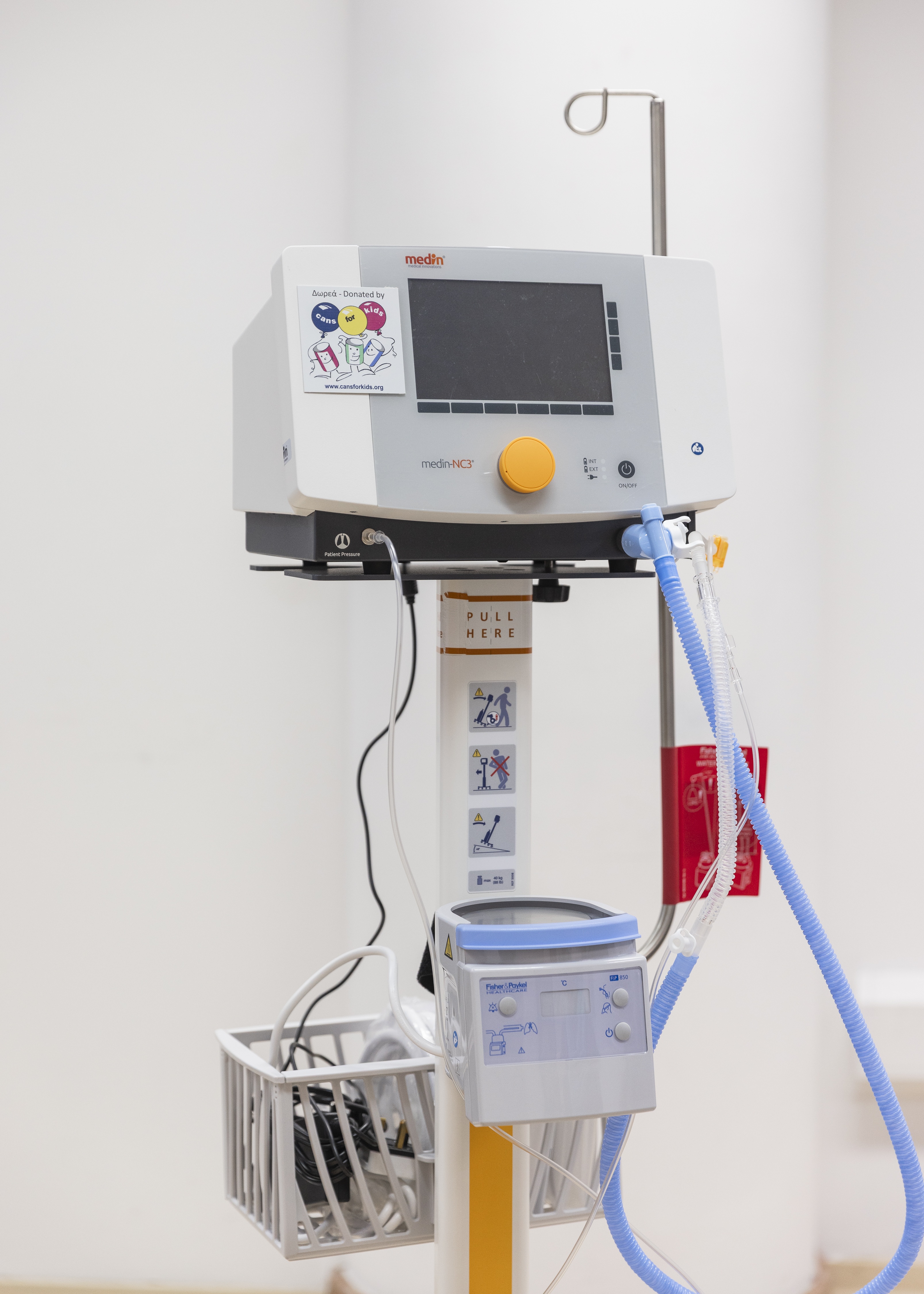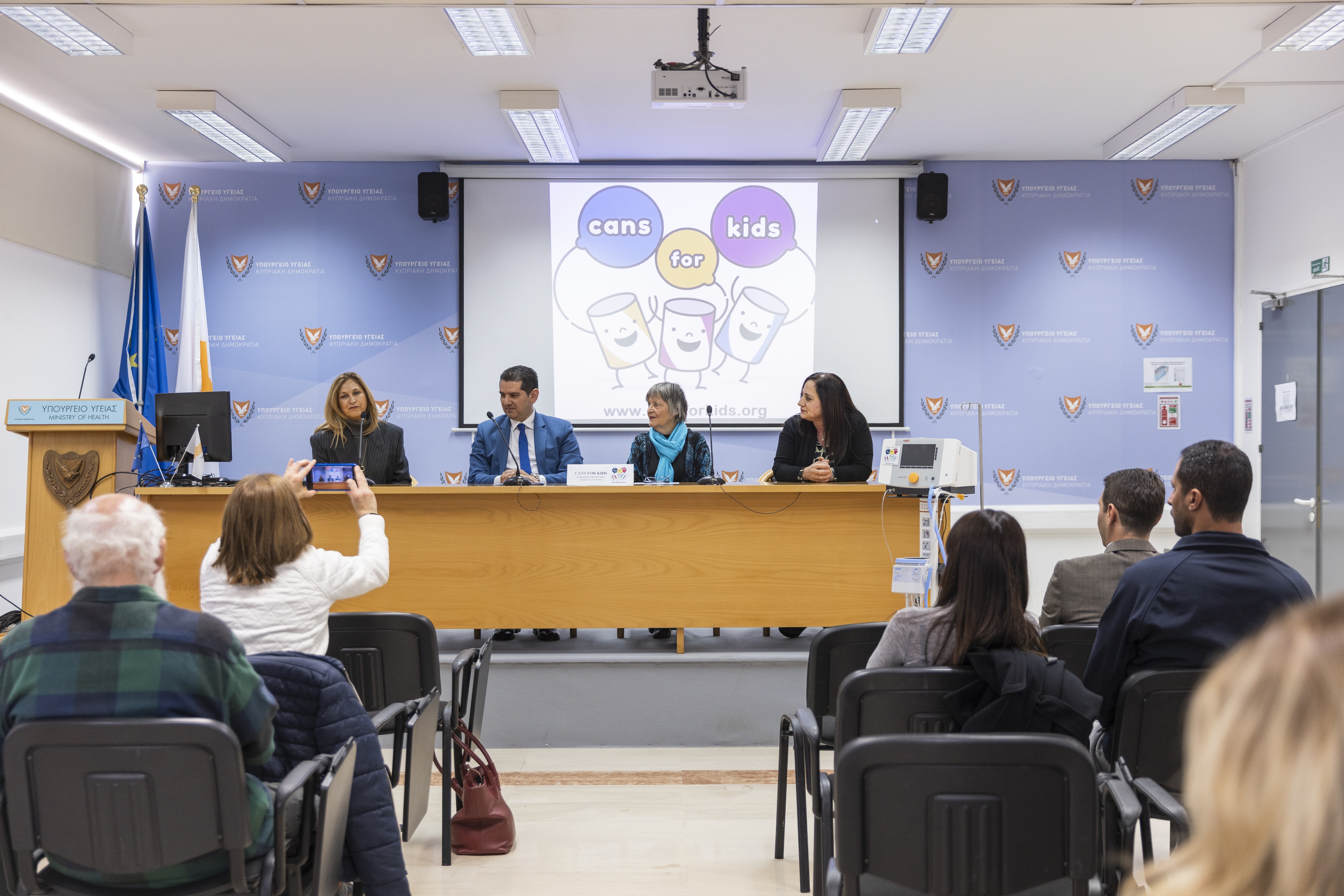The neonatal intensive care unit of Limassol general hospital received a breathing support machine for newborns on Thursday. The medin-NC3 CPAP driver, valued at €14,500, was a donation from the Cans For Kids association.
The equipment, purchased with proceeds from metal recycling, was officially handed over during a ceremony attended by the Health Minister Michael Damianos, who praised the initiative and underscored the need for continuous investment in neonatal care.

Handing the device over to minister, the charity’s president, Rosie Charalambous, expressed her delight at the milestone achievement.
“Just over two years since our last donation, also worth almost €15,000, to Makarios hospital, the continued efforts of our dedicated volunteers at sorting sessions have enabled Cans For Kids to buy this latest piece of equipment,” she said.
“The cumulative value of equipment donated to our hospitals since we started in 1990 has now reached almost €350,000,” Charalambous added.
“That’s several million cans that have not polluted our lovely island by going to landfill. We turn something you were going to throw away into something valuable that we can give back to our community. As we always say, every single can counts, so please bring us yours and help us to continue improving our medical services.”
Prematurity remains a pressing concern worldwide, and Cyprus currently has the highest rate among European Union countries, with approximately 11.1 per cent of births occurring prematurely. This highlights the urgent need to enhance medical infrastructure and services for newborns and their families.
Recognising these challenges, the Cypriot government has invested in specialised neonatal care facilities at both Makarios Hospital in Nicosia and Limassol general hospital. The neonatal intensive care unit at Limassol hospital, upgraded in 2017, serves the Limassol and Paphos districts, providing essential care for full-term and premature newborns requiring specialised treatment.
Equipped with modern facilities, the unit operates under the hospital’s paediatric clinic and is staffed by five highly trained neonatologists, supported by a dedicated nursing team. It provides intensive and intermediate care for newborns over 33 weeks of gestational age and weighing more than 1,500 grams. In cases requiring more complex interventions, newborns are transferred to the neonatal intensive care unit at Makarios hospital for further treatment.
The unit currently has five intensive care beds and ten intermediate care beds, treating approximately 400 newborns annually. Advanced medical equipment, including ventilators, transport incubators, and high-tech breathing support devices, ensures critically ill newborns receive the best possible care.
Damianos expressed gratitude to the Cans For Kids Association for its generous contribution.
“We warmly thank Cans For Kids for their latest donation and their ongoing support of the island’s paediatric facilities,” he said.
The director of the hospital’s paediatric department, Maria Agathocleous, highlighted the machine’s importance.
“This CPAP driver offers the neonatal department, which is part of the paediatric clinic, a modern breathing support machine for premature or full-term newborns who need it. It manages to increase the end-expiratory pressure in the lungs of newborns, thus allowing gas exchange to occur.”
“We need it because with it we can give whatever oxygen concentration we want, without supplying air, something we can’t do with our other CPAPs. It can also breathe for the baby if needed. I thank you from the bottom of my heart and I pray that God will repay you many times over,” she added.
Also attending the event was Georgia Lefkariti, executive director of Petrolina Public Ltd, as the company has been a consistent supporter of the association, providing fuel for its vehicles over the years.
Thanking Petrolina for their longstanding support, Charalambous said, “Petrolina’s generous contribution enables us to collect cans from all over Cyprus and means that our precious funds can go straight to the purchase of more medical equipment.”






Click here to change your cookie preferences